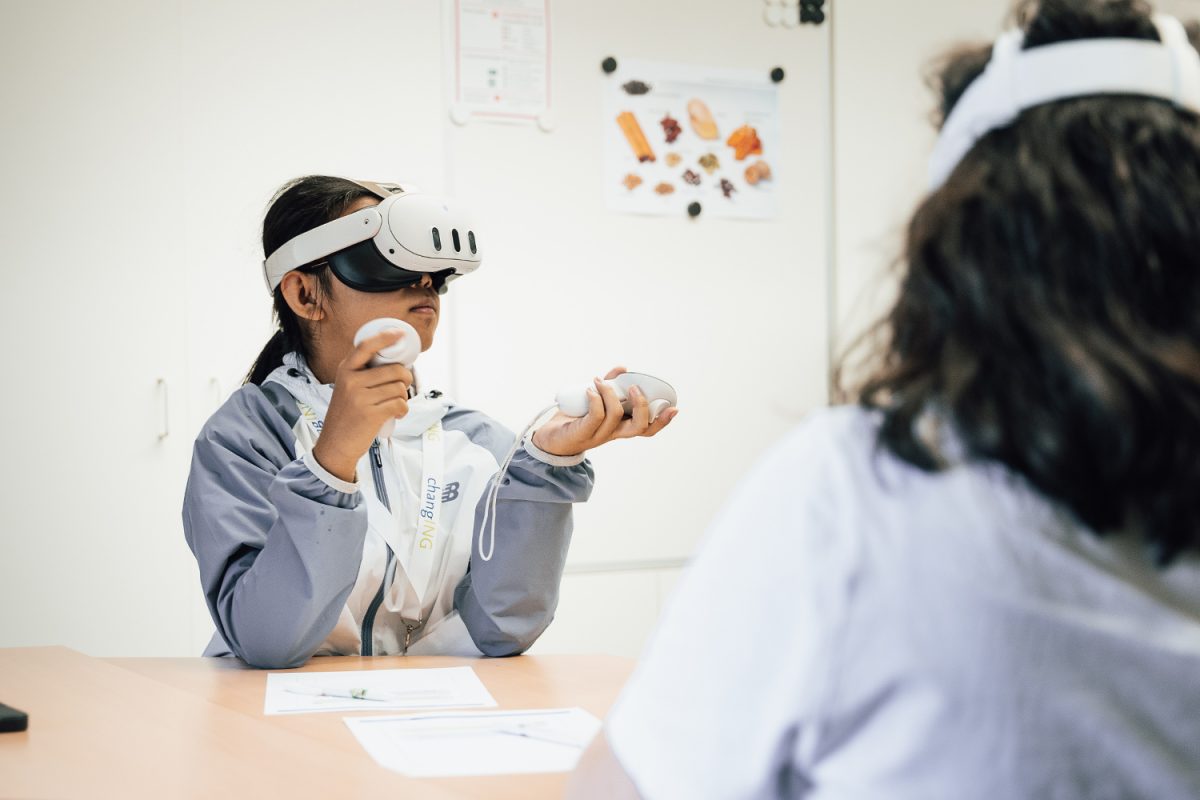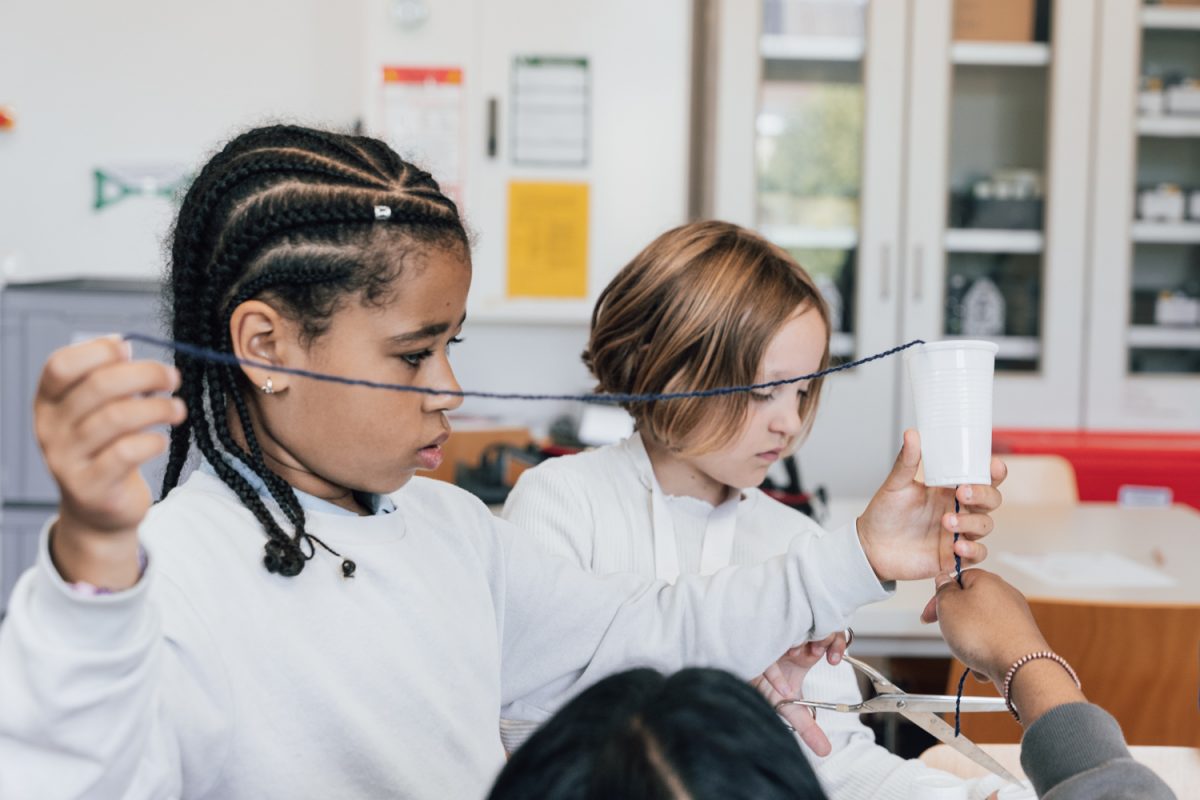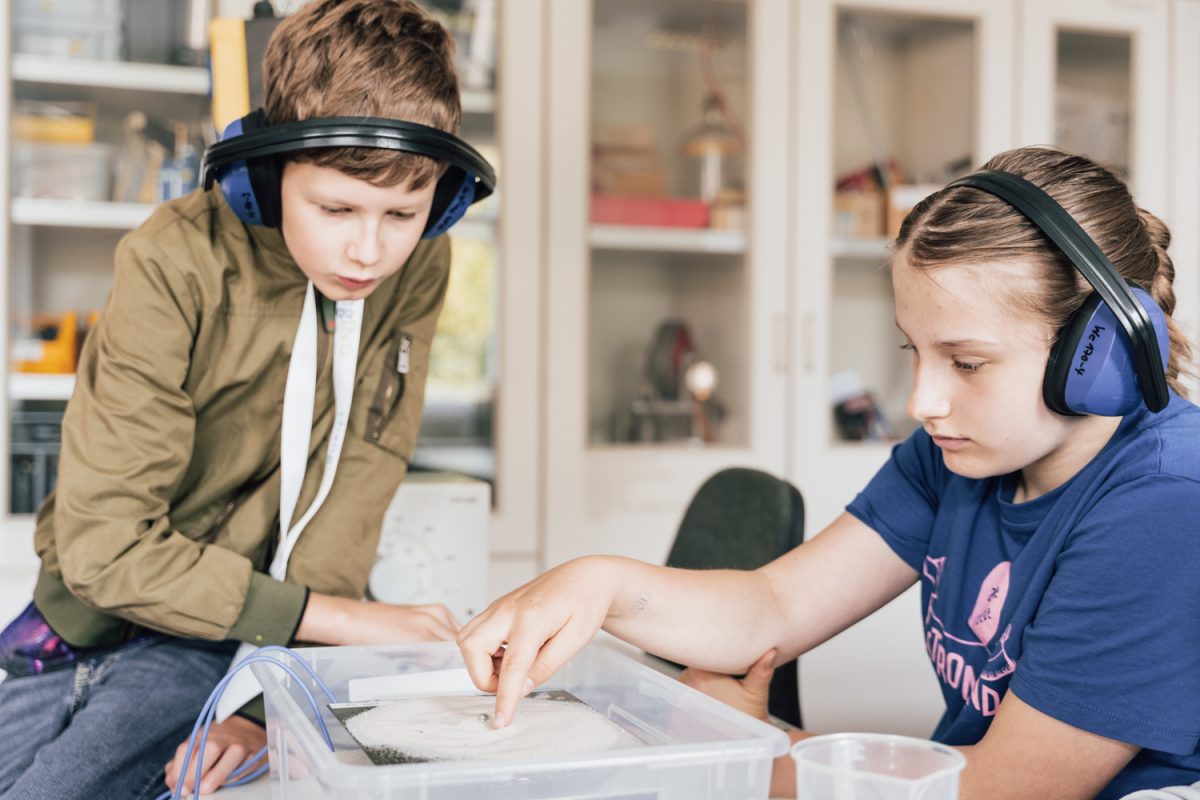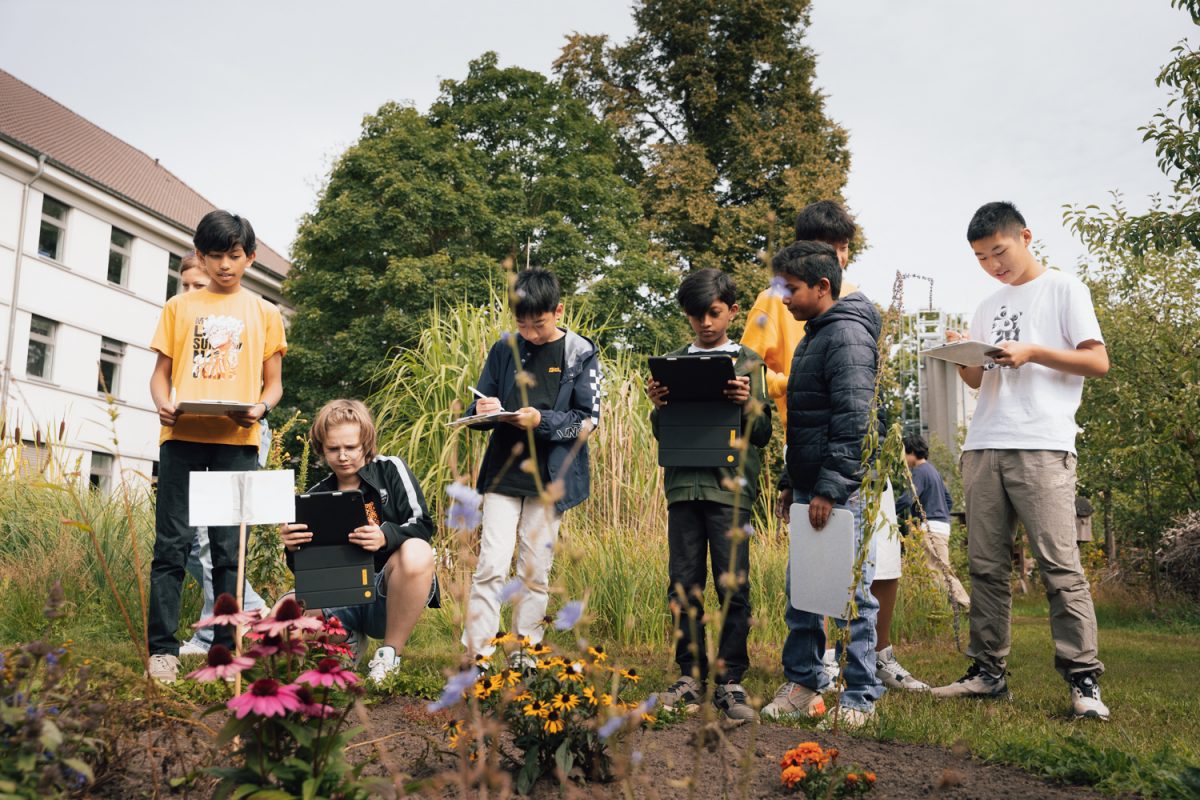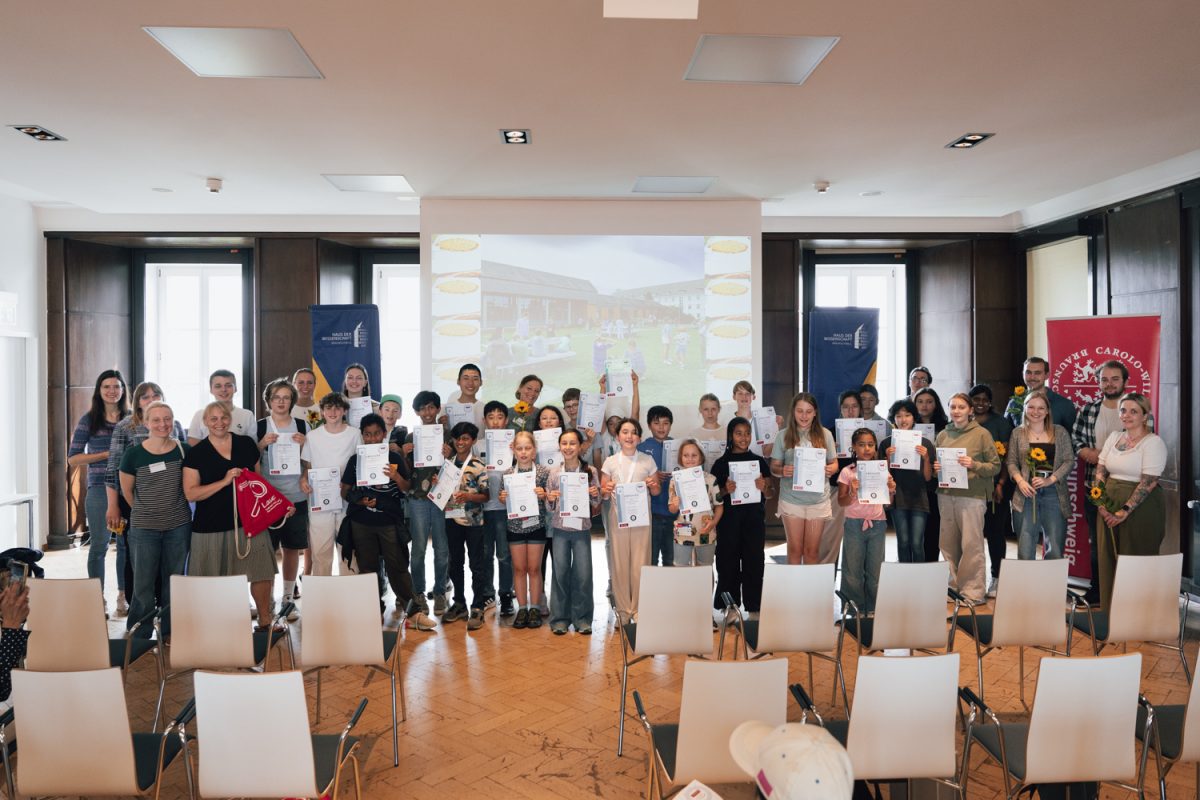Research during the school holidays Summer Camp at TU Braunschweig – A taste for research
For one week, participants researched, built, wrote and marvelled at Technische Universität Braunschweig. From 4 to 8 August 2025, a summer camp for children aged 10 to 14 took place there. A total of 37 schoolchildren from Braunschweig and the surrounding area signed up and enjoyed a varied programme planned and organised by the Department of Language Didactics at the Institute of German Studies, the Institute of Physics and Physics Didactics and the Institute of Biology and Biology Didactics. The event was made possible by funding from the Research Institute of Teacher Education (RI) at TU Braunschweig and the Braunschweigischer Hochschulbund, in cooperation with the Haus der Wissenschaft.
On the various days, the children immersed themselves in different topics. In the biology workshops, they discovered the fascinating world of plants and wild bees, explored ecological relationships and tested their new knowledge in a digital game on the food specialisation of different species. In the Green School in the Botanical Garden, the young researchers had to solve an exciting action-packed puzzle: they rescued the notes of a missing botanist and, in the process, playfully discovered the characteristics of different plant families in the systematic beds. In another activity, the young people were able to explore the structure and function of the human heart from the inside in an immersive experience using VR glasses.
In physics, the focus was initially on acoustics, followed by an exciting unit on rocket physics, in which models were planned, built and tested. In addition, participants gained insights into how the heart works – in particular the structure and function of heart valves.
The German workshop combined technical, creative and linguistic learning in a unique way: the children built a balancing robot, explored the use of artificial intelligence in writing and also produced their own stop-motion videos. In the process, they learned to use language as a tool for knowledge and representation – whether in precise instructions or in reflections on the use of digital tools. Artificial intelligence was not used as a substitute for the children’s own ideas, but served as a catalyst for deepening their engagement with language and writing.
The overall educational concept followed the principle of research-based discovery learning: the children were encouraged to formulate their own questions and hypotheses, document their observations and reflect on their findings in a professional and linguistic manner.
A key factor in the camp’s success was the dedicated work of the research assistants and doctoral students, who supported the young learners with their expertise, patience and enthusiasm, thereby contributing significantly to a motivating learning atmosphere. The Haus der Wissenschaft also provided active support in organising and running the event and created a professional setting for its start and finish.
At the end of the camp, the young researchers not only took home new knowledge, but above all the experience that learning is most enjoyable when you can ask your own questions, try out ideas and find answers as part of a team. At the same time, TU Braunschweig also used the camp to conduct its own research – the findings will be incorporated into the development of new teaching materials that can be used directly in schools in the future. The summer camp thus impressively demonstrated how effective interdisciplinary and language-sensitive learning can be, while also laying the foundation for innovative educational offerings in the future.
The organisers see the 2025 Summer Camp as a kick-off event for further projects in the coming years.
Text: Jun.-Prof. Dr. Katharina Kellermann, Dr. Anne Geese, PD Dr. Dagmar Hilfert-Rüppell

